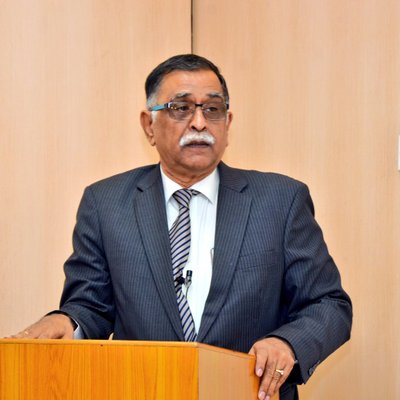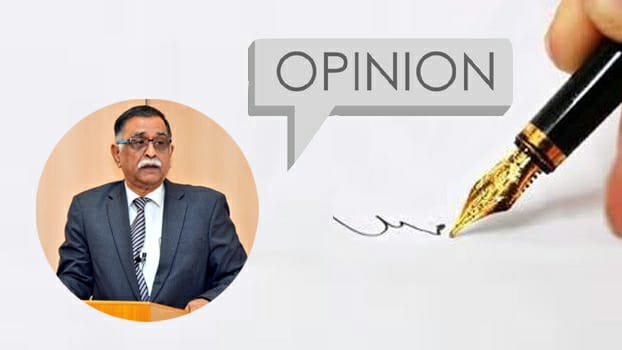Kashmir-related happenings
When we look back at the last two preceding years, we see a slew of development packages introduced by the Government of India

Coming August 5 will mark the second anniversary when the Indian state of Kashmir saw abrogation of Article 370 of the Indian Constitution ushering in structural changes and bringing an end to the exclusive privileges hitherto enjoyed only by the Kashmiris. This threw up opportunities for the other Indians to enjoy the state of Kashmir as their brethren have been availing. This step also led the state to become a Union Territory as also Ladakh.
Now, when we look back at the last two preceding years, we see a slew of development packages introduced by the Government of India for the welfare of the Kashmiri people. A random look at the prevailing state of affairs in the last two years would reveal that the state has been relatively quiet from the angle of terror related activities. This is also possibly because of the government’s sustained efforts to reach out to the people of Kashmir at the grassroots level as well as thwarting attempts for the new potential recruits to indulge in any act of terror.
Simultaneously, the security forces and intelligence agencies also displayed adequate alacrity and vigilance to neutralise any terror plans. Such moves seem to have paid dividends attest for the time being.
While the long term outcome of the parleys will be known in
time to come, the mere involvement of a wide spectrum of
leaders exhibit a sense of commitment on part of the government
to engage the opposition too for long term fulfilment of
aspirations of the Kashmiri people
In order to revisit the history about the origin of terror afflicting Kashmir, it would easily reiterate that the principal reason for the abatement of terror in Kashmir in the last nearly three decades, it’s simple to point out that India’s hostile westerly neighbour, Pakistan has been pursuing a nefarious blueprint, indoctrinated and trained on the Pakistani soil, were infiltrated into Kashmir to carry out the terror agenda. Pakistan’s deep state or the Inter Services Intelligence (ISI) has always been suspected of its complicity in such executions.
This apart, Pakistan state machinery, in collaboration with other diabolical characters, had funded rather generously to the Kashmiri separatist elements. It is perhaps pertinent to point out at this juncture, a few separatists who fell to the nasty game plan of the Pakistani sponsors of cross border terror. Intriguingly, many assassinations were also carried out by the terror planners in this regard to stifle their voice when they slightly deviated from the assigned task. Working on a systematic propaganda campaign, Mirwaiz Mohammad Farooq was publicised to be dead by the Pak agencies in May 1990 much before he was actually killed. This was a dastardly act by the Hizbul Mujahideen (HM).
Being a separatist notwithstanding, Mirwaz was Chairman of the All Jammu and Kashmir Awami Action Committee and he desired peace in Kashmir. Because he wanted peace, he was eliminated. Later, on May 21, 2002, Abdul Ghani Lone, founder President of the Jammu and Kashmir People’s Conference was assassinated when he visited slain Mirwaij’s Srinagar graveyard to commemorate the death anniversary of the latter. He paid for his life after he refused to comply with the diktat of then President Musharraf who had rejected Lone’s pleas to the Pakistan government to withdraw Pakistan backed terror groups from Kashmir. These instances give us an idea that the majority of Kashmiris have been supportive of anti terror activities and for peace in Kashmir but the vested quarters in Pakistan violently silenced such moves for tranquility.
Kashmiris at large remember with gratitude their champions of peace including Lone, Mirwaiz Farooq and Prof Wani. The complicity of the Pakistan supported non state actors is irrefutable.
This said , it would be pertinent to point out that as recently as on June 24 this year, the Government of India held extensive talks in capital New Delhi with Kashmiri political leaders, cutting across ideological differences. Leaders like Dr Farooq Abdullah and Omar Abdullah of the National Conference (NC), Mehbooba Mufti of the opposition PDP participated in the possibility of elections in the near future as well as initiating a process for delimitation and other related issues. While the long term outcome of the parleys will be known in time to come, the mere involvement of a wide spectrum of leaders exhibit a sense of commitment on part of the government to engage the opposition too for long term fulfilment of aspirations of the Kashmiri people.
(Shantanu Mukharji is a security analyst and a freelance columnist. He is also the former National Security Advisor to the Prime Minister of Mauritius.
Views are personal)




